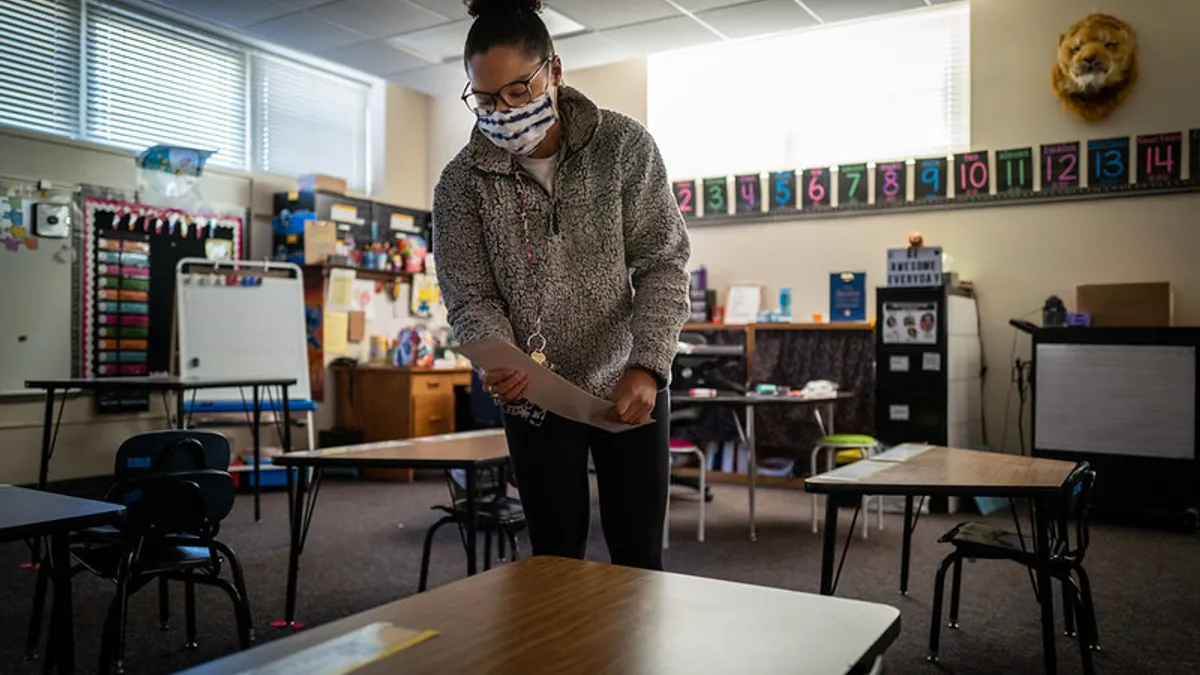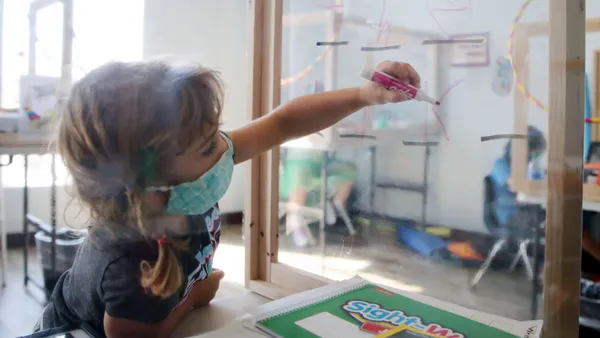Dive Brief:
-
During a Wednesday virtual panel organized by the National Association of State Boards of Education, a group of state officials from California, Illinois and Kentucky suggested education leaders should prioritize supporting student mental health as schools reopen for in-person instruction and plan for the next school year.
-
State leaders should ask what existing policies can be used to support superintendents and districts during a return to schools, said Megan Blanco, director of Safe and Healthy Schools for NASBE and the discussion's moderator. In that vein, many of the initiatives panelists cited as promising practices existed prior to the pandemic and were expanded or stressed in light of COVID-19.
-
Superintendents can also work with their states. In North Carolina, superintendents report to an education oversight committee, while 130 out of 171 Kentucky districts have participated in an initiative focused on trauma-informed practices training that began prior to the pandemic. In California, non-mental health school staff receive training for Youth Mental Health First Aid, an emergency response approach based on the concept of medical aid.
Dive Insight:
Partnerships are also key in successfully implementing mental health initiatives. Panelists pointed to parents, local universities, resource centers and local training programs as potential partners for schools to tap into.
Some creative ways districts are already tackling this include providing suicide prevention training to parents, distributing resource guides with school lunches, and establishing hotlines so educators and parents can tap into resources quickly.
Panelists made clear that the success of many mental health wellness initiatives depends on consistent and sustainable efforts. "This is not an overnight watch-a-webinar kind of thing," said Kathryn Tillett, director of Project AWARE (Advancing Wellness and Resilience in Education) in the Kentucky Department of Education's Office of Continuous Improvement.
Trainings are not only offered consistently and sustainably, but are open to school staff other than counselors and teachers in some cases. For California's Youth Mental Health First Aid program, for example, the target audience includes everybody from bus drivers to cafeteria staff and school secretaries.
And virtual programming has actually improved YMHFA in a way, said Monica Nepomuceno, an education programs consultant in the California Department of Education's Mental Health Services Program. When the pandemic hit, she said, in-person training shifted online, making it more accessible to some rural areas.
Initiatives can also "outlast funding," said Tillett. For example, professional development for about 150 district-level trainers led to a reach of an estimated 20,000 or more school adults in Kentucky. "The work is just scaling and expanding beyond our wildest dreams."













